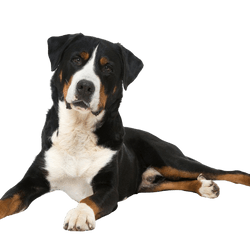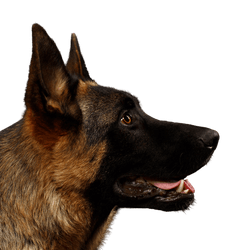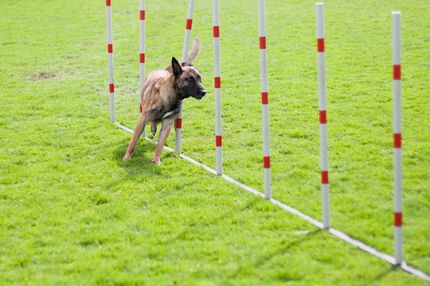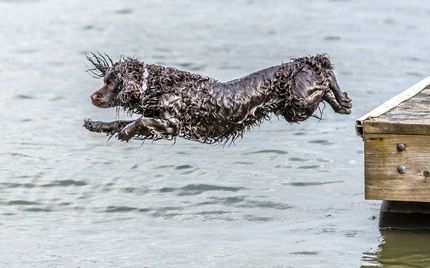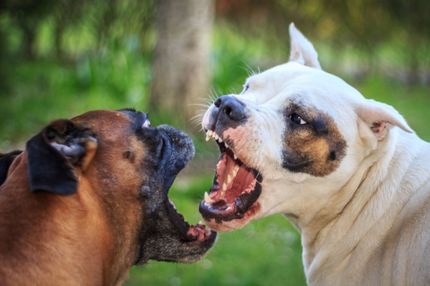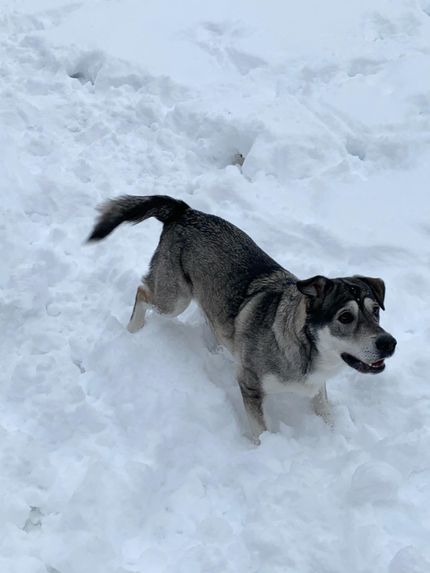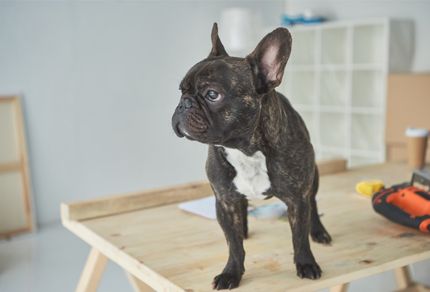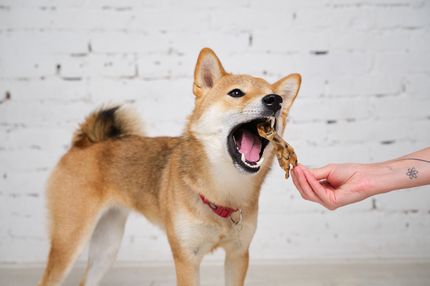Facts & Origin
The amalgamation of the Appenzeller Mountain Dog with the Belgian Shepherd presents a captivating fusion of two venerable canine lineages. Nestled within the idyllic embrace of the Swiss Alps, the Appenzeller Mountain Dog emerged as a formidable herding sentinel, drawing admiration for its statuesque presence and distinctive pelage. In juxtaposition stands the Belgian Shepherd, a breed sculpted in the heart of Belgian territories. It distinguishes itself with an astute intellect and multifaceted prowess, making it not merely a cherished herding companion, but also a trusted sentinel in security domains. When these two esteemed breeds intertwine, the result is a hybrid lineage that beautifully encapsulates the enthralling attributes of its progenitors.
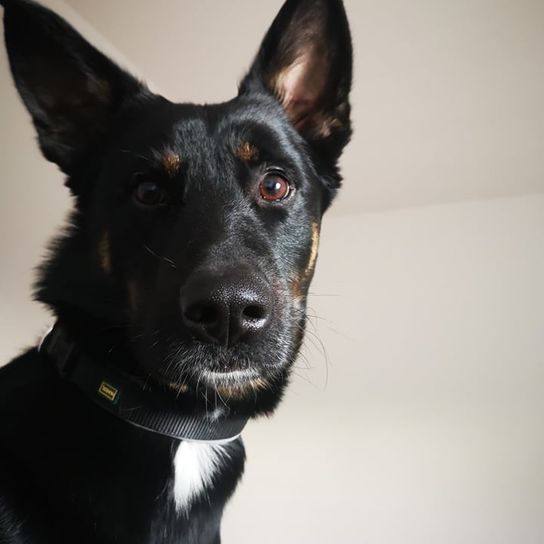
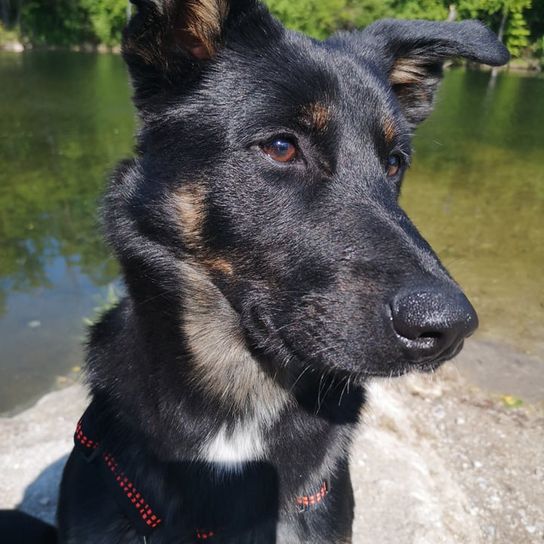
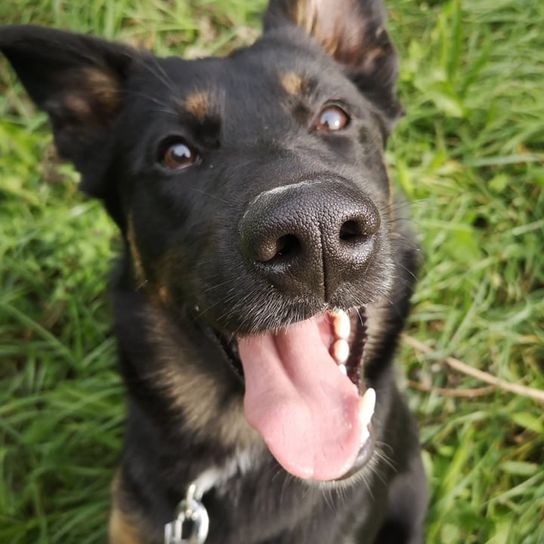
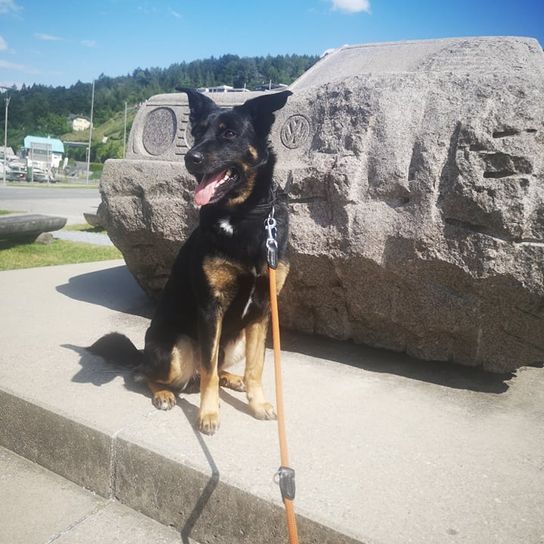
| Alternate Name | - |
| Origin | Switzerland - Belgium |
| Life expectancy | 8 - 14 years |
| Care requirements | low-maintenance - high-maintenance |
| Activity level | high |
| FCI group | not recognised |
| AKC group | not recognised |
| KC group | not recognised |
More Appenzell Mountain Dog mixes
More Belgian shepherd dog mixes
Attitude, character and temperament of the breed
In the illustrious tapestry of canine genetics, the union of the Appenzell Mountain Dog and the Belgian Shepherd Dog paints a compelling portrait of a hybrid with profound ancestral legacies and multifaceted temperaments.
Both breeds are celebrated for their indefatigable work ethic and keen intelligence. As such, one would surmise that this blend would manifest an acute aptitude for learning, paired with a zestful ardor for diverse tasks and undertakings.
Given the inherent herding propensities of both parent breeds, it stands to reason that this amalgamation might possess an innate compulsion to marshal or direct. It wouldn't be far-fetched to envision such a mix attempting to "shepherd" entities within domestic confines, be it playful children or fellow pets.
Both breeds are renowned for their unwavering loyalty and profound affinity to their human counterparts. It is conceivable, then, that this crossbreed would forge an intimate and enduring rapport with its guardian or familial unit.
Marrying the vivacity of the Appenzell Mountain Dog with the Belgian Shepherd's dauntless spirit and acute vigilance, one could anticipate a companion who is both keenly alert and unwaveringly affable.
In terms of stewardship, an ideal custodian would be one seasoned in nurturing working breeds. It would be judicious to inundate this mix with consistent cerebral and physical engagements. Disciplined training, early socialization, and dynamic pursuits such as agility would likely be the elixir for this dog's wellbeing.
The quintessential guardian for such a mix would be an individual endowed with the requisite vitality, perseverance, and sagacity to navigate the dog's potent work instincts and cerebral prowess. Residency with ample outdoor expanses, or at the very least, accessibility to vast open terrains for spirited gambols, would be propitious. It is paramount to weave regular instructional sessions and interactional opportunities into their routine, ensuring a harmonious and contented canine companion.
Character
In the vast symphony of canine lineage, the harmonious blend of the Appenzell Mountain Dog, colloquially known as the Appenzeller Sennenhund, with the illustrious Belgian Shepherd Dog, or simply Belgian Shepherd, introduces a duality of pedigrees, each bearing its own distinct susceptibilities to health ailments.
Hip dysplasia, an ailment marked by an improperly formed hip socket, looms as a potential affliction. Given that both breeds present a predisposition towards this malady, periodic assessments and judicious management become paramount.
Ocular maladies often cast a shadow over many canine breeds, with the Belgian Shepherd being no exception. Hence, the hybrid offspring might harbor vulnerabilities to certain optical complications.
Elbow dysplasia, a morphological anomaly of the elbow articulations, is a condition that occasionally besieges larger canines, and the Appenzell Mountain Dog falls within this purview. Consistent vigilance and diagnostic screenings may serve as salient countermeasures in this context.
A segment of Belgian Shepherds exhibits a propensity towards epilepsy, a neural malaise manifesting in convulsions. A circumspect approach would be to remain cognizant of this possibility and ensure regular veterinary oversight.
Given the spirited vitality intrinsic to both breeds, the peril of muscular trauma or detriment to sinews and tendons cannot be overshadowed. It behooves one to exercise restraint during strenuous escapades and to eschew overburdening the canine.
For those who entertain the prospect of guardianship over such hybrid lineages, it's sagacious to acquaint oneself with these potential health quandaries and to prioritize progeny from pristine breeding stocks. Periodic veterinary surveillance and prophylactic measures are imperative to safeguard the health and vitality of this mixed breed.
To culminate, it is imperative to underscore that while certain maladies are documented in the progenitor breeds, it is by no means a foregone conclusion that every hybrid descendant will be plagued by these afflictions. Each canine embodies individuality, potentially fostering a unique health narrative.

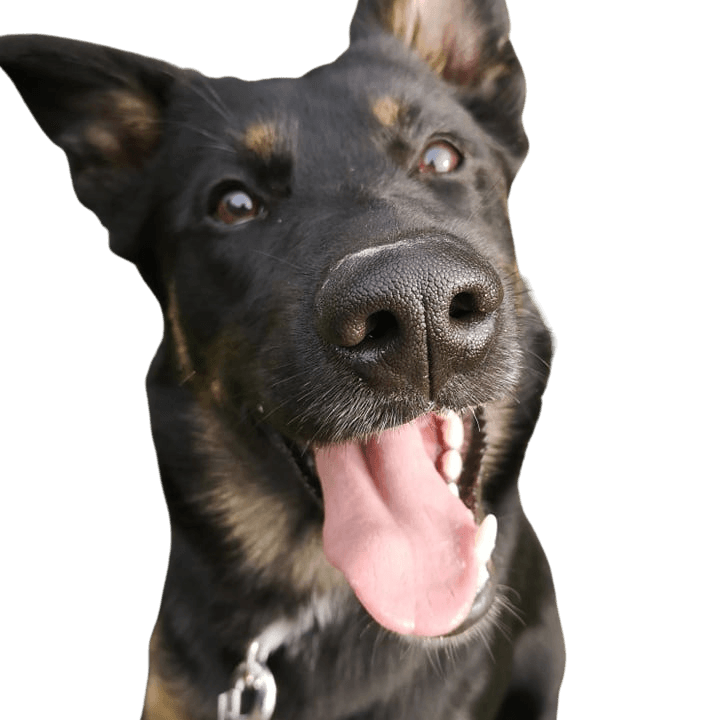
What does this crossbreed look like?
In the illustrious realm of canine aesthetics, the fusion of the Appenzell Mountain Dog with the Belgian Shepherd weaves an intricate tableau of physical traits, drawing generously from the rich genetic tapestry of both antecedent breeds.
The pelage of this interbreed might bear the imprints of the thick, sinuous fur of the Appenzell Mountain Dog or perhaps adopt the more sleek, streamlined texture emblematic of the Belgian Shepherd. Alternatively, it could elegantly straddle both attributes, manifesting as a mid-length sheen with gentle undulations. In terms of hue, a spectrum spanning raven black, monochromatic black and white juxtapositions, rich chestnuts, and even the evocative sable could adorn this canine, contingent on the predominant chromatic legacies of the parentage.
The ocular attributes of this hybrid could oscillate between the deep, umber gazes of the Appenzeller Mountain Dog and the often enigmatic, obsidian depths of the Belgian Shepherd. The luminosity in these eyes would arguably radiate sagacity and an insatiable inquisitiveness.
Architecturally, one might anticipate a robust, sinewy physique befitting the industrious lineage of both progenitor breeds. In terms of dimensions, the hybrid could comfortably nestle within the medium to grand scale, contingent on the preeminence of genetic endowments.
The cranial structure could either echo the pronounced, geometric contours of the Belgian Shepherd or perhaps lean towards the more rotund, consolidated visage of the Appenzeller Mountain Dog. Auricular attributes could stand sentinel-like in their erectness or perhaps gently incline, hinging on genetic interplay.
Finally, the extremities of this mixed breed, its paws, would arguably be fortified and tenacious, aptly tailored for a multitude of endeavors and terrains, a testament to the indefatigable spirit of its parent breeds.
Known Diseases
Hip dysplasia (HD)
Hip dysplasia (HD) is a genetic condition in dogs where the hip joint is not shaped properly. This leads to pain, stiffness and restricted movement.
Elbow dysplasia (ED)
Elbow joint dysplasia is a chronic disease complex of the elbow joint of fast growing dog breeds.
Eye diseases
Often occur with allergies and intolerances.
Spondylosis
pathological changes in the vertebral bodies and intervertebral discs
FAQ
-
The two breeds have adaptable and determined characters that display both energy and endurance. They are very intelligent, easy to train and loyal and affectionate during their lives.
-
This mix of two breeds needs consistent training and consistent leadership. Both breeds are very intelligent, but it is important to give commands in a clear and calming voice tone. Distractions such as toys and treats should be avoided for effective training.
-
Yes. As an owner, you must invest time and energy daily to ensure that the dog has adequate physical and mental stimulation. Both breeds need regular exercise in the form of walks, runs and even short swims.
-
These mixed breeds don't necessarily need a lot of space, but they do need regular exercise. A backyard with a secure fence would be ideal for them. If you do not have access to a garden, it is important to take walks once a day for at least an hour to ensure physical and mental stimulation.
-
There are many places where you can find such mixed breeds at responsible price. It is best to go to a recognized animal agency such as the local shelter or a carefully selected breeder.

